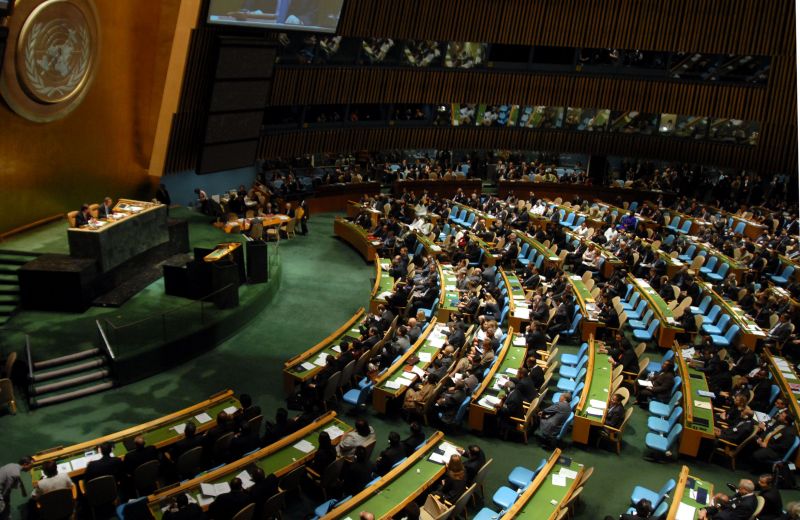 Op-eds
/ Strengthening Israel's Foreign Policy
Op-eds
/ Strengthening Israel's Foreign Policy
The annual meeting of the United Nations General Assembly, which occurs every fall, affords heads of state from across the globe the opportunity to lay out their vision and policies for the future of the world. While it was Russian President Vladimir Putin who stole the show this year, the speech given by US President Barack Obama was also revealing, pointing to the foreign policy priorities of the world’s only remaining superpower. This, however, was not the case with the Prime Minister of Israel, who addressed a half-empty General Assembly hall. As usual, Benjamin Netanyahu did not miss an opportunity to put his usual gimmicks on display. This time it was a 44-second long dramatic and deafening silence accompanied by an angry and incensed stare at the members of the few delegations who remained in the hall, its only purpose to determine what kind of impression his antics left on them.
The majority of Netanyahu’s monologue was devoted to listing the sins of Iran, as well as the dangers the Islamic Republic poses to the world. While it is true that this year we did not hear of Hitler and the Munich Agreement – although anti-Semitism did in fact feature in his remarks – Netanyahu seized the opportunity to attack and castigate the entire world, and particularly the United Nations that was hosting him, for its silence, as if the entire world is against us again.
In the past, Netanyahu has been able to captivate the world’s attention and focus it on the Iranian nuclear issue. There is no doubt that it is he who was able to raise this issue and place it at the top of the agenda of the international community. This time, however, now that the deal with Iran has been signed, the issue is one for the history books. No one is interested anymore. There is no doubt that Netanyahu is aware that he has failed in this regard. Moreover, he is cognizant of the fact that the manner in which he conducted himself vis-à-vis President Obama and his Administration precluded Israel from having any impact upon the nuclear agreement. Therefore, one must ask why the Israeli Prime Minister still devoted so much room in his remarks to the issue. Even if I were inclined to believe his apocalyptical prophesies, his empty slogans and talking points, which have been uttered so many times before, prevented me from doing so.
Just one day after Abu Mazen’s speech before the General Assembly, and the debate that the organization devoted to the Palestinian question, Netanyahu, too, should have given the issue the attention it deserves. Unfortunately, IsraeliPalestinian peace was but a secondary feature in his remarks. On this issue, too, Netanyahu said nothing new. He pointed an accusatory finger at Abu Mazen and again reminded his listeners of the Palestinian recalcitrance to reaching any agreement. The prime minister reiterated his commitment to a two-state solution. However, in all likelihood the goal behind doing this was to pave his path back into the good graces of the Obama Administration and to restart a positive bilateral dialogue. Other than an unconvincing call to resume negotiations “without preconditions,” Netanyahu did not present any new plan or vision. One must also ask: is the call to recognize Israel as the nation-state of the Jewish people not a precondition?
In light of the deteriorating situation in Jerusalem and the Palestinian Territories in recent months, one would have expected a speech whose goal was to calm the situation and create hope in the hearts and minds of his audience – both in Israel and in the territories. Unfortunately, this section of Netanyahu’s speech was hollow and disappointing. What is more, one must wonder why Netanyahu chose to completely ignore the harsh reality of the unfolding events across the region – the ongoing, bloody conflict taking place on Israel’s northern border, as well as the Russian presence in Syria and the risks it carries.
Netanyahu’s speech was another eloquent, missed opportunity for it said nothing about the Israeli policy. This, of course, should come as no surprise: an Israeli foreign policy simply does not exist. And beyond that, it is hard to comprehend why Netanyahu chooses to confront the entire world time and again; why he castigates, protests and admonishes, if need be, exposing how isolated Israel is from the rest of the world. What precisely did he think we stand to gain from that?


